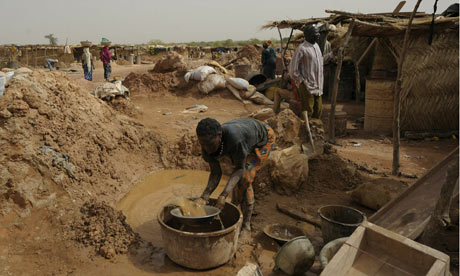But it’s not all bad news. The name Burkina Faso comes from
two of the main native languages in the country: Burkina means “men of
integrity” in Mòoré; and Faso means “fatherland” in Dioula. Its capital
Ouagadougou [this is the French way of spelling of Wagadugu] is derived from
the Ninsi tribal language meaning “where people get honor and respect.” The city lies pretty much in the center of
the country and has about 1.6 million people.
Originally this land was the home of the Mossi peoples. There
were several Mossi kingdoms spread across the area, but two of the largest and
more powerful were the Wagadugu and the Yatenga. Later, the French arrived and
declared it as a protectorate in 1896, renaming it Upper Volta. It was named
after its proximity to the Volta River Basin (which there is actually a Black
Volta, White Volta, and a Red Volta River).
In 1960, the country officially declared its independence from France
and governed itself under the name of Republic of Upper Volta. There were a
series of coups and the constant changing of regimes, followed by and resulted
in decades of governmental instability. It was President Thomas Sankara who
changed the name of the country to Burkina Faso in 1984 (who ended up being
killed in a coup three years later).
Because the French had taken control of the area for so long,
French is considered the official languages. Ninety percent of the people speak
African languages that belong to the Sudanic language family. However, three of
the most-spoken languages are also officially recognized as regional languages:
Mòoré, Mandinka, and Bambara.
As far as religion goes, there’s a saying in Burkina Faso
that pretty much sums it up: “50% Muslim, 50% Christian, 100% animist.” For the majority of Burkinabé people
[Burkinabé is the word used to describe people, things, and the culture of
Burkina Faso], they may choose to either be Muslim or Christian, but they will
always maintain a connection with the spiritual traditions of their ancestors.
Because the country lies in the Sahel region, there is a
definite rainy and dry season. This affects crop production drastically, and
they constantly suffer from the results of drought. Many Burkinabé choose to
leave the country in order to get work, mostly to Côte d’Ivoire or Ghana. There
is some gold mining done in Burkina Faso, and they rely on gold exports as well
as exports of cotton, their main cash crop.
The AIDS prevalence is 1.2%, twice what it is in the United
States [four times more than Canada; six times more than the UK], but it’s towards
the lower end compared with other African countries. This certainly affects
other aspects of health and socioeconomic statistics and general quality of
life standards. However, a UNAIDS report in 2011 reported that there has been a
significant decline HIV/AIDS in pregnant women for those who attend antenatal
clinics. Another highly disturbing statistic is that over 72% of girls and women have
suffered from female genital mutilation (according to a 2005 WHO report). This
practice is found from the Horn of Africa up through Egypt and across the Sahel
countries. From the efforts of a brave few, now many countries, including
Burkina Faso, have now enacted legislature against this horrific unnecessary practice.
 |
| If I remember my basic French, I think it says "AIDS is a reality. I'm informed, what about you?" Or something. |
I’m excited to take a new look at this lesser-known country,
to explore its culture and its almost-undiscovered beauties. As I’m slowly finding in this world, people are
amazing in their tenacity to maintain the gumption used to create beauty in art
or music or create a delicious meal despite the sometimes bleak situations that
are handed to them through no fault of their own. Since I’ve already picked out
my recipes – which sound really awesome – I’m excited to come back to an area
of the world that has increasingly grown on me: West Africa.
Up next: Holidays and Celebrations





No comments:
Post a Comment